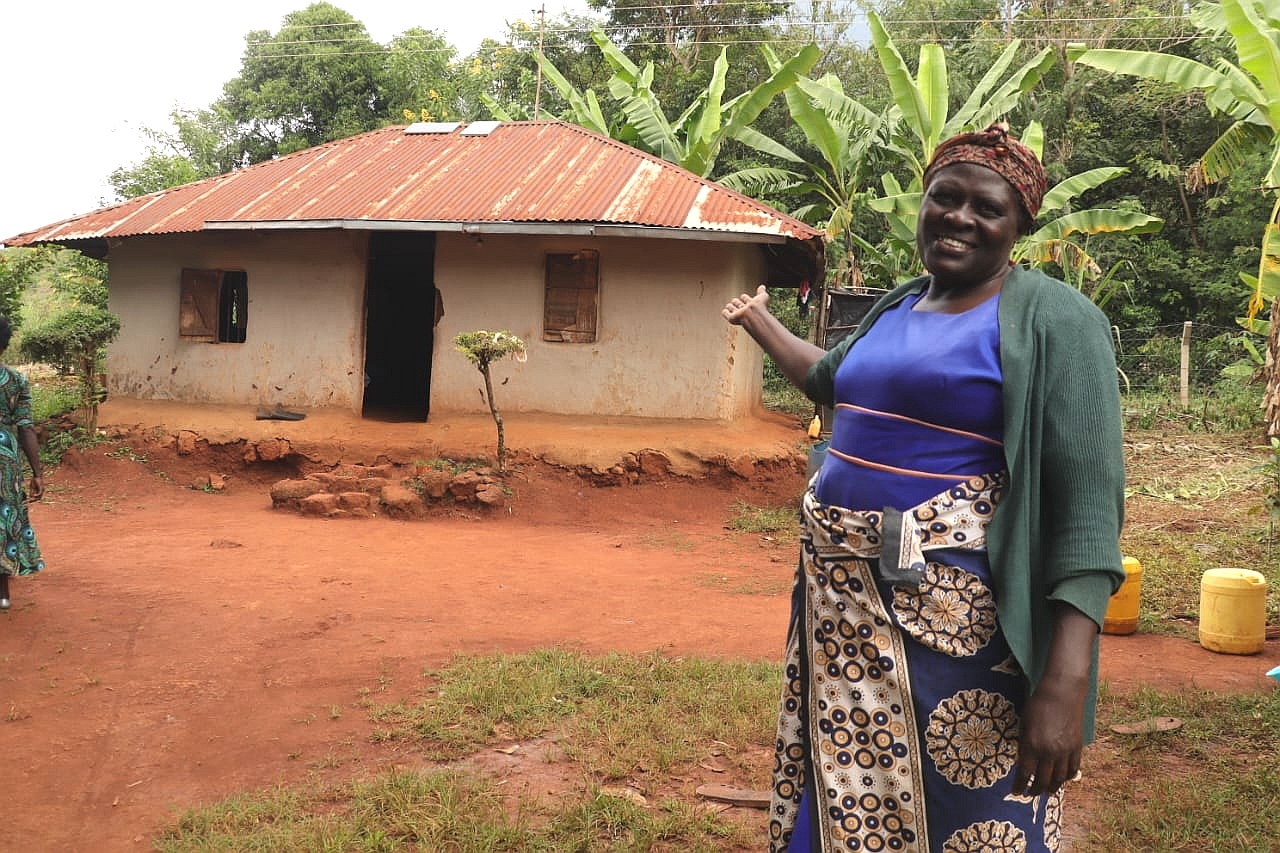
 Risper Oketch at her semi-permanent house she built for her family against the Luo cultural practices /HILTON OTENYO
Risper Oketch at her semi-permanent house she built for her family against the Luo cultural practices /HILTON OTENYO For decades, women in Western Kenya have been denied active participation in the region’s socio-economic growth by entrenched gender inequities, cultural norms and poverty.
Their contributions have often been undervalued or rendered invisible, limiting their ability to pursue prosperity.
However, some women are defying cultural barriers to break the cycle of poverty and make a meaningful impact in their communities.
Risper Oketch, 60, from Bukoya village in Samia subcounty, is among those who have risen above long-standing traditions. Married in the 80s, she was forced to fend for her family after her husband developed health complications.
She took up menial jobs and later built her family a semi-permanent house using donated iron sheets, defying Luo customs that prohibit women from constructing houses while their husbands are alive.
Her decision drew stigma and accusations of bewitching her husband, but she remained resilient.
Oketch later joined Village Enterprise, a non-profit supporting women with training, mentorship and seed capital to start businesses. Together with her group, she ventured into livestock trading — a male-dominated field — with an initial grant of Sh18,700 and has since grown into a successful trader.
She now pays school fees for her children, including one studying at Moi University.
In nearby Mulakha village, Lilian Ooko defied customs that forbid women from planting trees. She used a Sh18,700 grant from Village Enterprise to start a tree nursery, planting over 20,000 seedlings. Today, she earns between Sh1,000 and Sh10,000 daily, challenging cultural myths that women who plant trees will die.
Village Enterprise, which has operated in rural communities for more than 30 years, focuses on eradicating extreme poverty, protecting the environment, and empowering women through climate-smart, sustainable businesses.
In Funyula constituency, the programme has helped establish 109 enterprises and trained 327 entrepreneurs, reaching more than 2,100 people with the support of the Swarovski Foundation, which has injected Sh15 million into the initiative.
Business mentor Judy Otieno says outdated traditions that held women back are slowly fading. “Village Enterprise has become a mobilising force. Today, even women attend public barazas that were once male-dominated. They are being equipped with enterprise skills, financial literacy and gender awareness to take charge of their future,” she said.
Through defiance of harmful traditions and support from development partners, women like Oketch and Ooko are rewriting the story of Busia county — from poverty and exclusion to dignity, independence and economic empowerment.












